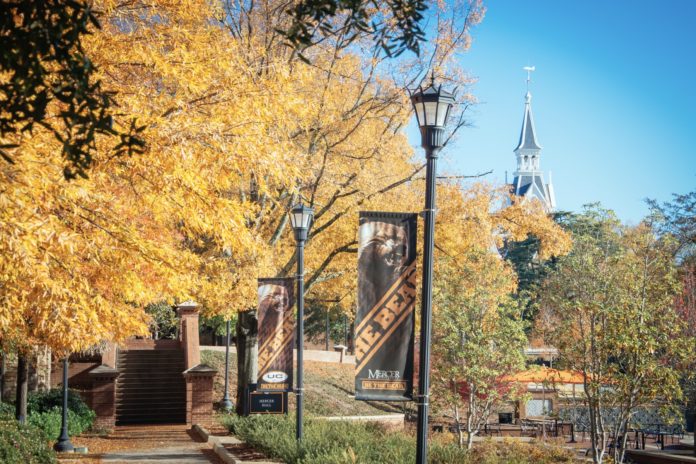MACON – Dr. David A. Davis, assistant professor of English at Mercer University, has been selected from a national applicant pool as a National Endowment for the Humanities (NEH) Summer Scholar and will attend one of 30 seminars and institutes supported by the NEH. The Endowment is a federal agency that, each summer, supports these enrichment opportunities at colleges, universities and cultural institutions so that faculty can work in collaboration and study with experts in humanities disciplines.
Dr. Davis will participate in an institute titled “Reconsidering Flannery O'Connor.” The four-week program will be held in Milledgeville at Georgia College, co-directed by Dr. Marshall Bruce Gentry of Georgia College and Dr. Robert Donahoo of Sam Houston State University. Summer Scholars will attend 10 lectures, participate in seminars conducted by four leading O'Connor scholars and spend a week working with materials available to scholars only through the Georgia College library.
The 25 teachers selected to participate in the program each receive a stipend of $3,300 to cover their travel, study and living expenses.
Topics for the 30 seminars and institutes offered for college and university teachers this summer include Algeria, Morocco, Tunisia: literature, the arts, and cinema since independence; American Maritime People; America's East Central Europeans: migration and memory; arts, architecture, and devotional interaction in England, 1200-1600; black aesthetics and African diasporic culture; bridging national borders in North America; Dante's Divine Comedy: poetry, philosophy, and the city of Florence; Daoist literature and history; George Herbert and Emily Dickinson; Jewish Buenos Aires; the Late Ottoman and Russian Empires: citizenship, belonging and difference; mapping nature across the Americas; the meanings of property; medieval political philosophy: Islamic, Jewish, and Christian; Mississippi in the national civil rights narrative; the Mongols, Eurasia, and global history; mortality: facing death in ancient Greece; performing Dickens: Oliver Twist and Great Expectations on page, stage, and screen; pictorial histories and myths: “graphic novels” of the Mixtecs and Aztecs; problems in the study of religion; reconsidering Flannery O'Connor; reform and renewal in medieval Rome; representations of the “other”: Jews in medieval England; Socrates; Tudor books and readers: 1485-1603; the federal government and the American West; the visual culture of the American Civil War; westward expansion and the Constitution in the early American republic; World War I and the arts; World War I in the Middle East.
The approximately 437 NEH Summer Scholars who participate in these programs of study will teach over 113,925 American students the following year.










